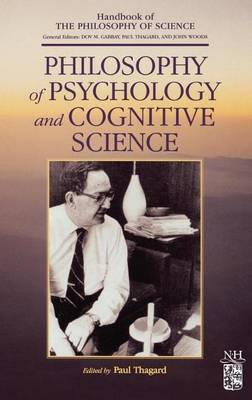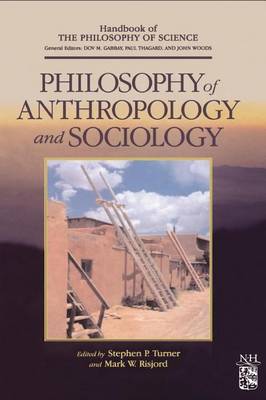Handbook of the Philosophy of Science
1 primary work • 4 total works
Book 12
Philosophy of Psychology and Cognitive Science
by Paul Thagard, Department of Computer Science Dov M Gabbay, and John Woods
Published 1 January 2006
Psychology is the study of thinking, and cognitive science is the interdisciplinary investigation of mind and intelligence that also includes philosophy, artificial intelligence, neuroscience, linguistics, and anthropology. In these investigations, many philosophical issues arise concerning methods and central concepts.
The Handbook of Philosophy of Psychology and Cognitive Science contains 16 essays by leading philosophers of science that illuminate the nature of the theories and explanations used in the investigation of minds.
Topics discussed include representation, mechanisms, reduction, perception, consciousness, language, emotions, neuroscience, and evolutionary psychology.
The Handbook of Philosophy of Psychology and Cognitive Science contains 16 essays by leading philosophers of science that illuminate the nature of the theories and explanations used in the investigation of minds.
Topics discussed include representation, mechanisms, reduction, perception, consciousness, language, emotions, neuroscience, and evolutionary psychology.
Philosophy of Anthropology and Sociology
by Professor Stephen P Turner, Mark W Risjord, Professor Dov M Gabbay, Paul Thagard, and John Woods
Published 27 October 2006
This volume concerns philosophical issues that arise from the practice of anthropology and sociology. The essays cover a wide range of issues, including traditional questions in the philosophy of social science as well as those specific to these disciplines. Authors attend to the historical development of the current debates and set the stage for future work.
Philosophy of Logic
by Dale Jacquette, Professor Dov M Gabbay, Paul Thagard, and John Woods
Published 19 October 2006
The papers presented in this volume examine topics of central interest in contemporary philosophy of logic. They include reflections on the nature of logic and its relevance for philosophy today, and explore in depth developments in informal logic and the relation of informal to symbolic logic, mathematical metatheory and the limiting metatheorems, modal logic, many-valued logic, relevance and paraconsistent logic, free logics, extensional v. intensional logics, the logic of fiction, epistemic logic, formal logical and semantic paradoxes, the concept of truth, the formal theory of entailment, objectual and substitutional interpretation of the quantifiers, infinity and domain constraints, the Loewenheim-Skolem theorem and Skolem paradox, vagueness, modal realism v. actualism, counterfactuals and the logic of causation, applications of logic and mathematics to the physical sciences, logically possible worlds and counterpart semantics, and the legacy of Hilbert's program and logicism. The handbook is meant to be both a compendium of new work in symbolic logic and an authoritative resource for students and researchers, a book to be consulted for specific information about recent developments in logic and to be read with pleasure for its technical acumen and philosophical insights.


